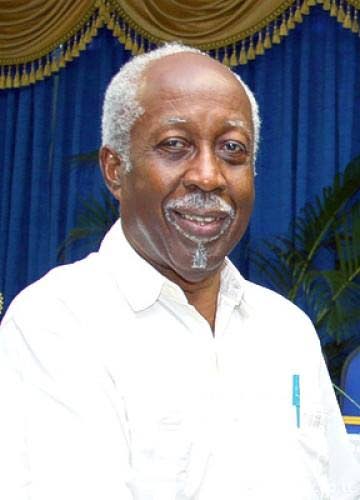Flawed awards

FOLLOWING President Weekes’ indefinite postponement of this year’s National Awards ceremony, the Express published an editorial which should be required reading.
The editorial said in part that it was not very convincing to suggest that “the Prime Minister [might] not have considered it prudent to finalise the list [of awardees] during the election campaign, given the possibility of a change in government.” Such an explanation would merely “validate…the need to protect the National Awards from the vagaries of politics.”
It went on: “In this regard, we recommend that consideration be given for removing the final say in the selection of awardees from the [PM]. Giving the top political office-holder the final say-so on the list of nominees recommended by the National Awards Committee has always carried an unhealthy risk of partisanship in what should be a non-partisan process. [Consideration should be given to] whether the…committee should be removed from the ambit of the Office of the [PM] and either stand alone or be transferred to the Office of the President…[The awards] have long needed to be protected from the [PM’s] political clout which has been used and abused at various times by [PMs] in different administrations, to the point of becoming debased.”
Why is the PM involved in the granting (or not) of National Awards? Because the law so authorises. The Schedule to Chapter 1:01 of our laws is, as attorneys so often put it, pellucidly clear. There is to be a National Awards Committee which is to consider nominations from the public, compile lists of “those nominees to whom an award may be made,” and send the PM those lists with its recommendations. The President bestows the awards, but this presidential action “shall be exercised…on the advice of the [PM] given after consideration of the recommendation of the advisory committee.”
In other words, our so-called “National Awards” are in essence “prime ministerial awards,” soaked in politics.
It’s PM power, introduced by Eric Williams and contentedly practised by his successors in office. I’ve got along well enough with all our PMs, even Williams (most of the time). But there is, to my mind, the overarching issue of principle, and a “national” award should not be subject, in our case legally subject, to the whims and prejudices of party politics.
I support the principle of awards for dedicated service to the nation. I’ve served on the National Awards Committee, both when I was PS to the PM and, after retirement, as one of two representatives of the public. I can therefore say, without fear of worthwhile contradiction, that most awardees have deserved National Awards. But I can also say that there are awardees (and others) who were never even nominated by anyone in the public, let alone recommended by the committee. (When Kamla Persad-Bissessar, then PM, offered our top honour to Patrick Manning and Basdeo Panday, was it on the committee’s recommendation?)
There are awardees who were nominated and recommended for certain awards, and who were cavalierly given awards of a lesser status. There are individuals who were nominated and recommended, and whose names were struck out by the PM (no particular PM) and replaced with the names of party (or PM) favourites. And there are people who lobby hard for an award, or, if they have already received one, for a more prestigious one. The system is untransparent and undemocratic.
When Michael de la Bastide was chairman of the committee (I was then a public member), proposals for change were made to the government. They got nowhere. Many years later, I suggested to a very senior member of the People’s Partnership administration that the Canadian arrangement should be examined. Nothing came of that either. The politicians obviously like it so. I can understand that. Power.
I’ve never received a national award of any kind. More accurately, I should say that I’ve declined all the offers of such awards – about seven or eight, I think – made to me over the years (none since 2010). Given what I’ve just said, you’ll understand that I could not and cannot in all conscience accept any such offers. Would I ever accept? Well, if the law were changed, and if an offer were then made, I would think about it. Arrogance, you say? Perhaps. But I prefer to be thought arrogant than to be the beneficiary of “altered” legislation which could be as politically tainted as the current one, so I must be careful. I’ve constantly urged good governance in this place. I must abide by my own exhortations.
And the truth is, I’m perfectly happy without any award at all. If I can assist in TT’s progress, that’s my reward.


Comments
"Flawed awards"